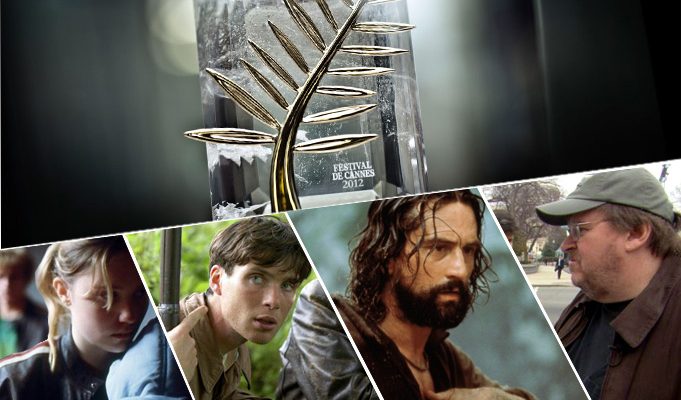 2005
2005
What Won: “The Child,” Jean-Pierre and Luc Dardennes’ bleak drama about a young couple who sell their baby for quick cash, only to instantly regret the decision.
What Should Have Won: Look, we know this sounds like heresy, but it was a very tough year, and given he’s won the Palme twice since, we’d probably pass over Michael Haneke’s “Cache,” in favor of Carlos Reygadas’ “Battle In Heaven.” But Johnnie To’s “Election,” Tommy Lee Jones’ “Three Burials Of Melquiades Estrada,” or Hou Hsiao-Hsien’s “Three Times” would have all been worthy winners.
Why? Like we said, this was a festival that was stacked — even without the above, there were flawed but interesting works by Jim Jarmusch, Wim Wenders, Gus Van Sant, Lars Von Trier, Hong Sang-Soo, Atom Egoyan and Robert Rodriguez in the line-up (plus Christi Puiu’s “The Death Of Mr. Lazarescu,” arguably better than anything in competition, playing Un Certain Regard). And the Dardennes have never made a bad film, and “The Child” is no exception: it’s searing, powerful stuff, and beautifully acted by stars Jeremie Renier and Deborah Francois. But it’s to some extent the Dardennes doing what they’ve done before and since, and we found it less powerful than their earlier Palme winner “Rosetta,” or even the more recent “The Kid With The Bike,” with the film slipping into wallowing in misery in places. Perhaps in a quiet year (hell, even the year before), we wouldn’t feel so strongly, but with decade-defining work from Haneke and Reygadas in the hunt for the prize as well, the Dardennes somewhat seemed like the safe option for Emir Kusturica’s jury.
 2006
2006
What Won: Ken Loach‘s effort about the Irish war of independence, “The Wind That Shakes The Barley,” starring Cillian Murphy.
What Should Have Won: Anything else? OK, that’s harsh, but we would take our pick from Guillermo Del Toro‘s “Pan’s Labyrinth,” Pedro Almodovar‘s masterwork “Volver,” Andrea Arnold‘s “Red Road,” or even “Babel” from Alejandro Inarritu Gonzales.
Why: This opinion might not go down well with some readers, but Ken Loach doesn’t scream Palme D’Or to us, which is ironic because his invitation never gets lost in the mail. In what is arguably his best film, and certainly his most epic, Cillian Murphy and the rest of the cast (special shoutout to Liam Cunningham, who gives a ferocious performance) are excellent, the cinematography is as picturesque and atmospheric as befits the grandiose themes and setting, and it’s easy to see why it’s the highest grossing independent Irish film to date. And yet, something is missing. More precisely, it’s the lack of any genuine intrigue or innovation that gives us pause; the movie never hides what it wants us to feel, making every intended reaction blandly pre-packaged. Nevertheless, the film is imbued in patriotic importance, and swayed the 2006 jury away from Del Toro’s brazenly creative fantasy, some of the best stuff Almodovar and Arnold ever directed, and Inarritu’s multi-storylined thesis on communication. As much as Cannes loves Loach, we feel like this is a glitchy Palme d’Or winner at best; everything it lacks is spread out evenly among the ones that should have won instead.
 2008
2008
What Won: “The Class,” Laurent Cantet’s moving story of a French teacher in an inner-city school in Paris. The film was the first French movie to win the Palme in 21 years (1987’s “Under The Sun Of Satan” was the last before it).
What Should Have Won: Again, you would be spoiled for choice. Even excluding high-profile misfires like “Blindness” and “Changeling,” you had Jia Zhangke’s “24 City,” Steven Soderbergh’s two-part “Che,” Arnaud Desplechin’s “A Christmas Tale,” Paolo Sorrentino’s “Il Divo,” Lucrecia Martel’s “The Headless Woman,” Matteo Garrone’s “Gomorrah,” the Dardennes’ “Lorna’s Silence,” Charlie Kaufman’s “Synecdoche New York,” Nuri Bilge Ceylan’s “Three Monkeys,” James Gray’s “Two Lovers” and Ari Folman’s “Waltz With Bashir.”
Why? Again, don’t get us wrong: “The Class” is a very fine film, one that deservedly became an international hit. But it’s still a dressed-up, somewhat conventional take on the inspirational-teacher picture, that’s hardly doing anything hugely exciting with the medium. In a year without the fierce competition of one of the most varied and exciting Cannes line-ups in memory, it might have been a fine winner. But again, this is one that just feels like the dullest choice that Sean Penn’s jury could have made, whether put against more classical, restrained fare like “A Christmas Tale,” “Two Lovers” or “Gomorrah,” or formally bolder pictures like “Synecdoche New York” or “Waltz With Bashir.” Well, except for “Changeling,” obviously.

